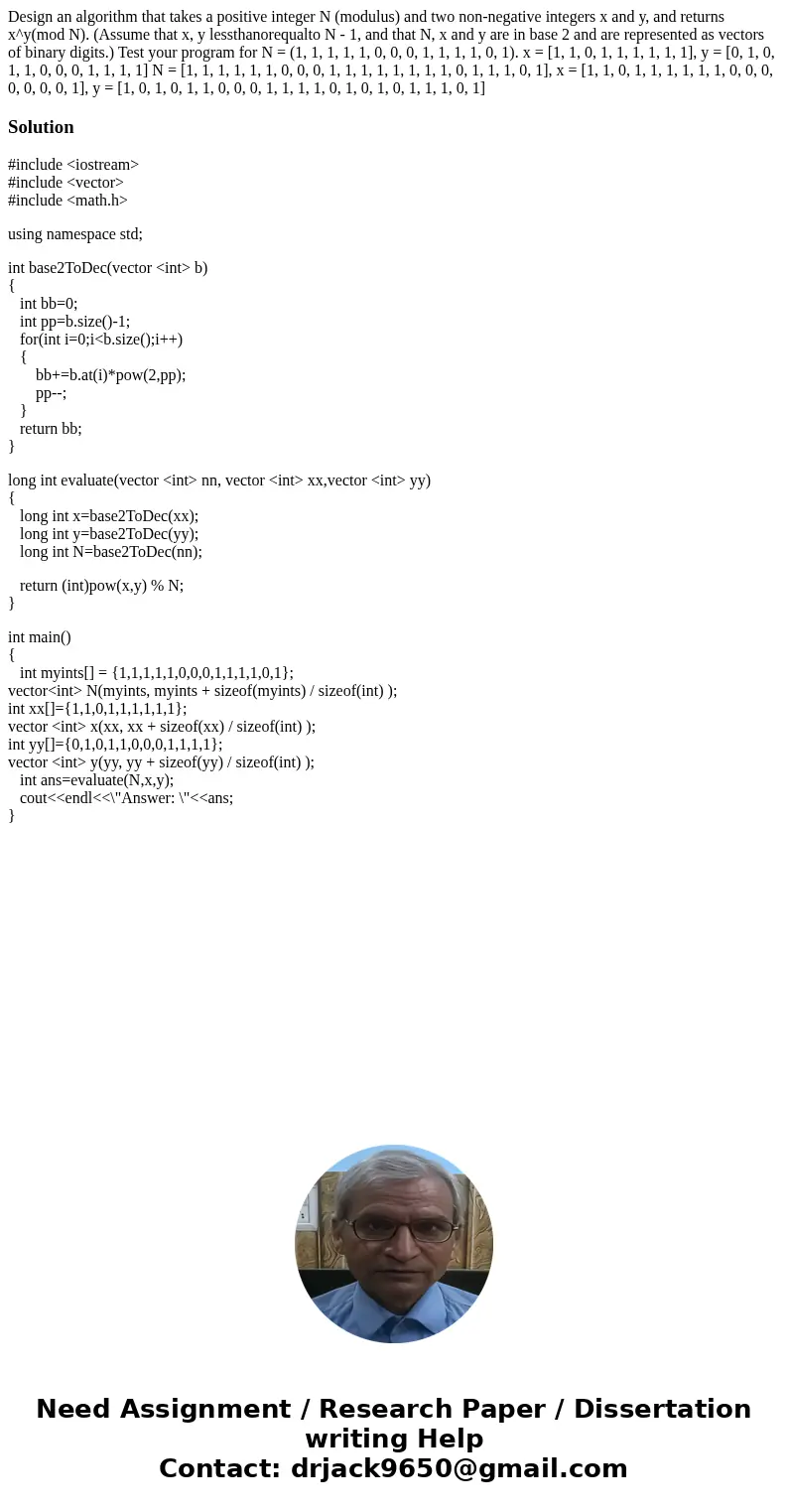Design an algorithm that takes a positive integer N modulus
Solution
#include <iostream>
#include <vector>
#include <math.h>
using namespace std;
int base2ToDec(vector <int> b)
{
int bb=0;
int pp=b.size()-1;
for(int i=0;i<b.size();i++)
{
bb+=b.at(i)*pow(2,pp);
pp--;
}
return bb;
}
long int evaluate(vector <int> nn, vector <int> xx,vector <int> yy)
{
long int x=base2ToDec(xx);
long int y=base2ToDec(yy);
long int N=base2ToDec(nn);
return (int)pow(x,y) % N;
}
int main()
{
int myints[] = {1,1,1,1,1,0,0,0,1,1,1,1,0,1};
vector<int> N(myints, myints + sizeof(myints) / sizeof(int) );
int xx[]={1,1,0,1,1,1,1,1,1};
vector <int> x(xx, xx + sizeof(xx) / sizeof(int) );
int yy[]={0,1,0,1,1,0,0,0,1,1,1,1};
vector <int> y(yy, yy + sizeof(yy) / sizeof(int) );
int ans=evaluate(N,x,y);
cout<<endl<<\"Answer: \"<<ans;
}

 Homework Sourse
Homework Sourse